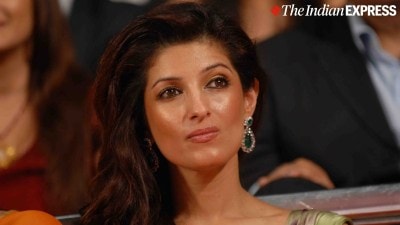Guarding the school gates
Today, as students, my children face the same learning experiences as me 20 years ago. Everywhere around the world new methods of teaching a...

Today, as students, my children face the same learning experiences as me 20 years ago. Everywhere around the world new methods of teaching and evaluation are being practiced, but our children continue to just copy exercises from the board, mug them up and reproduce them in the exam. Children now have access to more information channels, yet more and more subjects and contents are added to the school bag8230;
Sounds familiar? This is Neeta Mohla, a Mumbai-based teacher and mother, one of the many who was interested enough to write to the NCERT in response to the draft National Curriculum Framework for School Education 2005 document. Many, and not just those involved in preparing the draft 8212; soon to be debated in the Central Advisory Board on Education CABE 8212; felt relieved that the experts had finally made a serious effort to take on board the concerns of parents, teachers and children about how classroom practices are transacted and textbooks prepared, taught and read. Clearly, the relief was misplaced. The error in not paying sufficient attention to the new guardians of public interest 8212; not the now discredited ideologues of the Sangh Parivar but those of the Left 8212; is likely to prove costly. The recent collection, 8216;Debating Education8217; brought out by SAHMAT August 2005 makes for instructive and disturbing reading.
Leading from the front is senior historian Irfan Habib. He charges the policy document of 8220;evading real issues and making room for obscurantism8221;. In foregrounding 8216;learning without burden8217; and 8216;child-centred education8217;, he writes that the draft completely sidesteps the concern of communalisation of education under the erstwhile NDA regime, in particular of social science and history. As proof, he bemoans that, 8220;one fails to find any admonition that no religious song be recited or sung at the morning assembly.8221; Shades of the Saraswati Vandana controversy? Why, he goes on, is there no attempt to completely rubbish any notion of religious, spiritual, transcendental or value education?
If the demand was only for a radical secularisation of public space, in particular schools, it may have been possible to engage in a debate with these critics. But, as Habib and associates, all worthy notables, allege, this is only the thin end of the wedge. Instead of 8220;tailoring the entire exercise in terms of the requirement of national development and supremacy of rationality and the scientific spirit8221;, the document gives primacy to the 8220;individual development of the child8221;. They the drafters seem to believe 8220;that children come to school with an innate wisdom of their own which it is the business of the school to reinforce and nourish.8221;
Evidently the effort to foreground local and experiential knowledge, decentre the privileging of NCERT books, and encourage the production and use of a multiplicity of texts by different agencies so as to celebrate and accommodate the country8217;s diversity is, according to this Left view, a dangerous and regressive trend. 8220;In any case a grave danger lurks behind the glorification of primitive beliefs contrasted to scientific concepts, and in indulging in it one would open the gates to all kinds of superstition infiltrating school education.8221; Why, we might be folded with a glorification of sati!
The tirade does not end here. Everything child education pedagogues have valued and fought for 8212; how to lighten the textbook and place greater emphasis on the role of the teacher and classroom interaction, encourage analysis and problem-solving as against memorisation of facts by making the texts open-ended, incorporate the local environment and traditions in the classroom to both encourage school-society interchange and reduce the obsessive reliance on the textbook as the primary source of knowledge and, above all, look for and experiment with a plurality of paths and methods so as to include the widest diversity of children and experiences as a resource base 8212; are seen as recanting from the true path: secular, rational and national.
What is one to make of such a critique which questions the very presuppositions of the National Curriculum Framework exercise, characterises it as evasion, and worse, and asserts that it, if approved, will dumb down and destroy our school education? In other times, it may have been possible to ignore it. But, in today8217;s charged times where both discourse and policy have to contend with 8220;politically correct posturing8221; and what can be more correct than secularism and nationalism?, these charges, coming as they do from a credible source, can well seal the fate of this otherwise worthwhile exercise. It is instructive that a recent CABE expert group has already recommended that every school textbook be vetted by an expert group before being permitted entry in schools. Equally, the draft bill on Free and Compulsory Education, currently under preparation, goes on to define what is a proper school and teacher. No shoddy pretenders like the education guarantee or Shiksha Karmi schools for our worthies!
There are indeed many significant issues that need debate in the NCF document and no one, least of all those who have participated in the exercise, can lay claim to truth and infallibility. But, seeking to ram through a national system of education with a centrally defined and prepared curriculum and textbooks encoding 8220;correct knowledge and orientation8221; by delegitimising, if not squeezing out, all other alternative pathways 8212; public, private, communitarian 8212; is surely not the answer. One can only hope that the general assembly of the CABE scheduled to meet in early September does not fall prey to such reasoning. Surely there is life beyond the project of BJP bashing?
The writer is associate editor, Seminar
- 01
- 02
- 03
- 04
- 05































